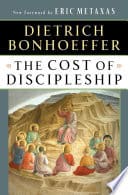Despite being one of the most recognized and celebrated figures in Christianity, Joseph is mentioned very little in the Gospels. Across all four Gospels, there isn’t a single quote attributed to the earthly father of Christ.
Imagine being entrusted with the responsibility of raising the Son of God yet remaining largely unspoken of in the scriptures. Joseph, the earthly father of Jesus, embodies this paradox. Despite his pivotal role in the Holy Family, the Gospels scarcely mention him. This leaves us to wonder about this remarkable man’s silent strength and faith.
Joseph isn’t even directly mentioned in the Gospels of Mark and John. Luke’s Gospel does mention Joseph, but never by himself—the first two chapters of Matthew’s Gospel best illuminate Joseph’s role in the Holy Family.
Everything We Know about Joseph in Under 300 Words
According to Matthew, Joseph, and Mary were betrothed but not yet married when Mary was “found to be with child” (1:18). While Luke tells us Mary had advance notice, Joseph doesn’t seem to have been filled in until after he “resolved to send her away quietly” (1:19).
Fortunately, an angel appears to Joseph in a dream, explaining the situation (1:20-21). Joseph has claimed and named the child that the holy family has to go to Bethlehem for the census, leading to the familiar nativity story in Luke chapter 2.
In Matthew, Joseph is warned in a dream to take Mary and the infant Jesus and flee to Egypt to avoid the wrath of Herod (2:13-15).
Beyond the biblical accounts, tradition holds that Joseph was a carpenter, a humble yet skilled trade that he would have passed on to Jesus. This everyday profession imbued Jesus with values of hard work and craftsmanship. Joseph’s influence extended beyond mere survival; he shaped his son’s moral and spiritual foundation, preparing him for his eventual ministry.
Joseph follows the angel’s instructions and takes the family to Egypt until another dream informs him that Herod has died and is safe to return to Israel. Joseph fears that Herod’s son will be just as hostile and—again guided by angels in his dreams—resettles the family in Nazareth instead (2:19-23).
Consider the weight of Joseph’s decisions—fleeing to Egypt, living as a refugee, and then uprooting his family again to settle in Nazareth. Each move, guided by divine intervention, demanded immense faith and resilience. Yet, behind these actions were moments of doubt, fear, and hope, revealing Joseph’s profoundly human side. His journey reflects the struggles many parents face today: the constant balancing of faith, responsibility, and their family’s well-being.
The last biblical mention of Joseph is the discovery in the temple in Luke chapter 2, but Joseph doesn’t play a highly active role. Some Bible scholars suggest that Joseph died early in the life of Jesus, but we just don’t know.
Now that we’ve covered all of the biblical mention of Joseph, what can we learn from him?
Joseph Shows Us “The Heart of a Father”
In his apostolic letter, Patris Corde (Latin for “Heart of a Father”), Pope Francis points out that Joseph naming Jesus is significant because naming establishes a relationship. Mary had a parental relationship with Jesus through birth, and naming establishes a similar relationship for Joseph.
Further, the Bible’s nativity narratives fulfill messianic prophecies, including one saying the messiah would be of the line of David. Jesus can claim this lineage through Joseph in a way that wouldn’t have been possible if Joseph had left Mary to be a single mother as he initially intended.
Joseph’s willingness to “adopt” Jesus is especially significant for foster parents and stepparents. However, as Pope Francis points out in his letter, all parents should see their children this way. Parenthood isn’t (just) a blood relationship—it’s a commitment to take responsibility for another life.
In articles for this site, I sometimes refer to “the child in my life” because I have a special paternal relationship with a girl who isn’t my (biological) daughter. While I can’t “claim” her in the way her mother does, I care for her, we foster one another’s growth, and I often look to St. Joseph for inspiration in that relationship.
Joseph Shows Us a Father’s Strength
It’s easy to see even Joseph’s actions as “just” following instructions. However, what more should any of us aspire to than to carry out the will of God, something that Joseph does at every opportunity?
We can also learn by reading between the lines of the instruction that he received. An angel did not tell Joseph how to find Mary shelter when they were turned away at the inns of Bethlehem; he handled that on his own.
Throughout their time in Egypt, Joseph’s work provided for them. When Herod died, Joseph was concerned about their return before an angel told him where to resettle safely, possibly in answer to his prayers for guidance.
The Bible provides extensive guidance on how to care for our families. Joseph is a role model for prayerfully and courageously handling situations in which we seem to lack direction.
Parenting with the Guidance of God
Joseph doesn’t win the “world’s greatest dad” award because everything always went according to how he expected or intended. Joseph won “world’s greatest dad” because he had the patience, understanding, and love to follow God’s plan no matter what.






















Leave a Comment